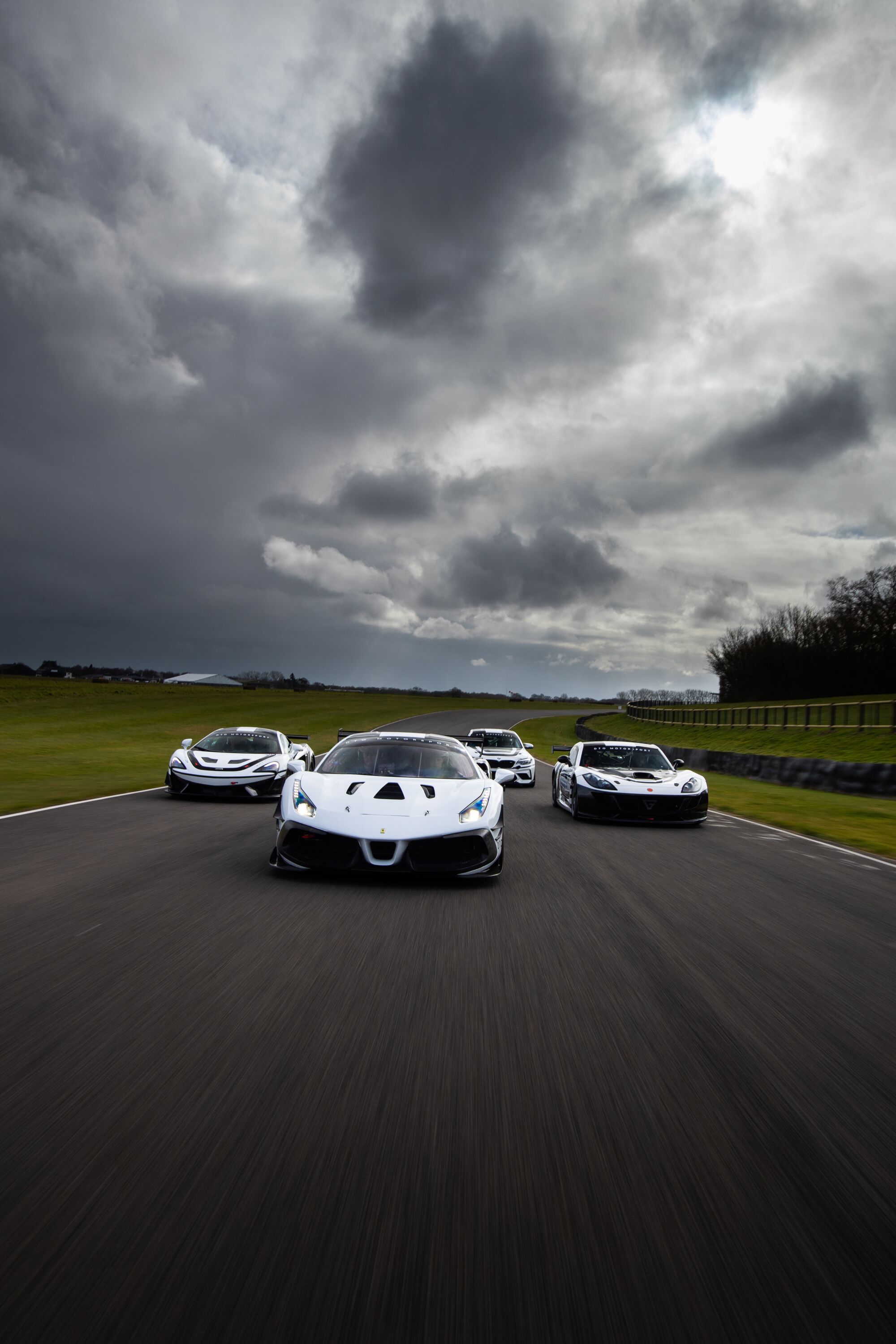Drophead gorgeous: celebrating over a century of Rolls-Royce convertibles
The UK isn’t known for its glorious, baking hot summers. The majority of our ‘sunny season’ turns out drab, overcast and damp, so why is it home to the makers of the finest drop top cars ever made? Hoping to find the answer, we took out three charming convertibles to celebrate over 110 years of convertible Rolls-Royces.

When Charles Rolls and Henry Royce embarked on a crusade to make the finest motor cars in the world in 1904, open air motoring was par for the course. The few wealthy individuals who’d ditched their horses in favour of new, revolutionary combustion-engined cars rode around in canvas topped, open sided vehicles. Predominantly used for short trips on fair weather days, there was little use for a heavy and clumsy metal roof. Fast forward over half a century, however, and it’s a very different story. The 1960s saw car design reach new levels of style, opulence and speed. Out went the lumpy, angular looks of yesteryear and in came new, radical shapes, jelly-mould hard-top bodies and flowing lines.

Just short of 60 years further on and I find myself on a typically overcast day in mid-summer. Standing outside the modern and manicured Goodwood Rolls-Royce factory, I’m joined by three of exquisite drop top’s all bearing the signature spirit of ecstasy but each representing three very different motoring eras. Over to the left is a 107-year-old 1912 Rolls-Royce Ghost while an immaculate 1959 Silver Cloud stands alongside a fresh-faced 2019 Dawn Black Badge. Between them, there’s over 167 years of motoring history, flying the flag for the finest drop-tops ever to grace the road.

First came the Rolls-Royce Ghost. As the first car from the auto firm, the Ghost was declared ‘The Best Car in the World’ after travelling from London to Glasgow 27 times – covering 14,371 consecutive miles. This particular Ghost – more affectionately known as ‘Nellie’ – rolled off the Derby factory floor in 1912 and was destined for a life far less ordinary. After sailing half way around the world, Nellie found herself in the hands of Rolls-Royce Bombay, where they officially named her the ‘Taj Mahal.’ Promptly selling to the Maharaja of Nabha in the North West of the country, she was equipped with a raised ride height, additional chain-linked mudguards – reportedly to catch stray Oxen mess and shield the occupants – two horns, an exterior champagne cooler and an engine override function. Legend has it that the two horns – one a soft, cartoon honk and the other a shrill siren – were designed for two very different jobs. The former, was intended to gently ward off any stray sacred cows while the latter, much louder horn was intended to scare off dithering pedestrians. Only in India.
Returning to the UK in the 1990s after Nellie’s current owner discovered her while searching for the perfect Ghost, and the car has since been driven across Europe, England and even Australia. With open sides and a hand operated brake and gear change, Nellie is a delightful yet devious relic from a bygone era of motoring. Consisting of a curious but charming mix of metal, wood and leather work, driving the Ghost on the open roads around Goodwood is a monumental motoring experience. Seeing her blasting through the dusty backroads of Bombay in those heady inter-war years must have been nothing short of mesmerising.
By the time the Silver Cloud arrived in 1955, the world was in a very different place. Two world wars, gloom and post-war austerity had taken their toll on the global elite. It was time for some high life. Designed by JP Blatchley, the drophead Silver Cloud’s 4,887cc engine was capable of propelling the Cloud to a top speed of 106 mph while the occupants sat behind a beautifully crafted and completely new steel body. Once nestled into the plush leather bench seat, before me lies swathes of crafted wood housing delicate dials and switchgear. All that’s missing is the heavy smell of cigar smoke.
Pulling away, the engine rumbles – albeit quietly – out in front while I waft along, working away at the oversized steering wheel to keep the car centred. Lovingly restored by DM Historics, this particular 1959 Silver Cloud is one of only 107 dropheads, custom made by H.J Mulliner. Equipped with the high-tech options, such as electric windows and rear armrest mounted speakers, the Cloud was delivered new to South Africa before spending time in Hong Kong ahead of its repatriation to the UK By DM Historics in 2017. Still laden with charm, the Silver Cloud is 1960s open top motoring at its most decadent.

Youngest of the three is the Dawn. Sporting satin black paint, a cherry red roof and suicide doors the Dawn is modern Rolls-Royce for a modern market. Built to appeal to a younger, more dynamic buyer, for better or worse, it’s a car that shouts louder than anything else on the road despite the fact its V12 engine is barely audible. Now owned by German powerhouse BMW, Rolls has come a long way from the days of the Derby factory. While the finish and build quality are still exceptional, in today’s light, the modern Rolls lacks the eccentric charm of its elder ancestors. Then again, it’s guaranteed to start every time and is no more difficult to drive than a VW Golf, albeit substantially more luxurious, so what’s not to love?
But comparing the trio is impossible and ill advised. While all three represent a very different era of motoring and period for Rolls-Royce, each spell out the joys of open top driving in their own unique way. From the exposed, raw luxury and craftsmanship of the Ghost and the gentle waft of the Silver Cloud through to the everyday extravagance of the Dawn – these cars are testament to the crazy but painfully considered British mentality that keeps the country at the pinnacle of engineering excellence. While Rolls might have changed considerably over the years, the British obsession with drop top driving clearly remains as incurable as ever.
Photography by Rob Cooper.
Rolls Royce
Ghost
Dawn
Silver Cloud








